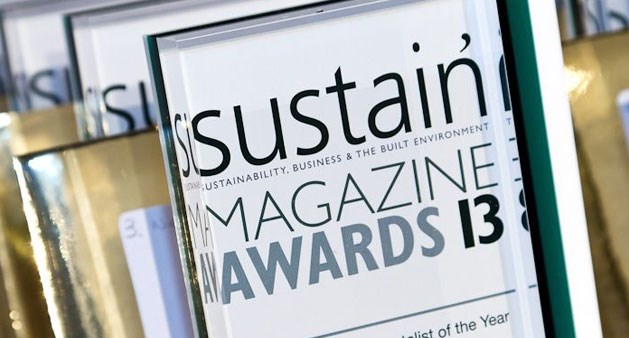The trade in tropical hardwoods, such as mahogany and teak, has long been seen as a major reason for the destruction of the rainforests. Some of that demand could soon change thanks to INEOS’ teaming up with a small, innovative Anglo-Dutch company.
INEOS has formed a partnership with an Anglo-Dutch company whose innovative technology could help to prevent the need to use hardwood taken from the world’s rainforests.
It has signed a deal with Accsys Technologies Plc, a small AIM-listed quoted company, which has developed a ground-breaking technique to turn soft wood, harvested from fast-growing, sustainable forests, into a resilient long-lasting wood, with properties at least as good as those of tropical hardwoods.
“I think the world as a whole recognises that these forests cannot be chopped down anymore, and our unique technology will contribute to reversing the need for tropical wood from rainforests,” said Paul Clegg, chief executive officer of Accsys.
“We want to have licensed operators using our technology all over the world. It may take a while. It may be a lofty ambition but we think it is very possible.”
INEOS’ role in the new company, Tricoya Technologies Ltd, will be to use its vast experience, excellent global connections and expertise in licensing technologies to sell the Tricoya acetylation technology to the world.
“Without INEOS, we would have got there in the end but it would have taken longer”, said Paul.
“A lot of people have great ideas but what counts is the successful implementation of an idea.
“INEOS’ involvement will make the difference and increases the likelihood of its successful execution.
“It will accelerate the roll-out of Tricoya, and INEOS also has contacts in markets, such as China, India and Russia, which we don’t.”
Negotiations between the two companies to exploit a market, worth about €60 billion a year, began about 18 months ago.
INEOS was excited by what Tricoya could offer the world and how its patented technology could revolutionise the wood-panel market. Accsys needed a partner with a global reputation for excellence.
“It can be a very long process to convince markets that you have the better product and have the breakthrough technology,” said Pierre Lasson, general manager at Tricoya.
“INEOS will be able to speed up that process by bringing its expertise to support this innovative technology.”
What INEOS offers is effectively ‘third party validation’, which money cannot buy.
“People are more inclined to believe those who have bought a product or use it, rather than a company itself,” said Paul.
Together the two companies will combine their strengths to develop the manufacture and sale of Tricoya’s engineered wood products.
What is special about the Tricoya technology is that it opens up new horizons for products, such as MDF, which itself revolutionised the industry in the eighties.
For although MDF was hailed as the ultimate in versatility and reliability when it was first commercialised in 1980, its weakness was that it absorbs water like a sponge, rendering it useless outdoors or in wet, ‘hostile’ environments.
“If you put it in a bucket of water, it turns to mush,” said Paul.
Tricoya retains all the positive things about MDF but it does not retain water, which means it does not warp, swell or rot. Instead the process improves the wood’s durability and stability, turning it from a soft wood panel into a wood panel with class 1 durability properties and with a 50-year guarantee for external use above ground.
“What is especially unique about Tricoya is its resistance to water which means it can go where no other soft wood has ever gone before, into new markets where traditionally other products – such as PVC and aluminium – have been favoured,” said Paul.
That is likely to please, and benefit, the construction industry – often rewarded for using sustainable materials – and wood panel manufacturers whose margins are low because their products are so cheap.
“We can help them to create higher value products, which will give them a better return,” said Paul.
The other beauty about Tricoya is that it consumes carbon dioxide. When the tree is harvested, the carbon is captured and because it doesn’t rot, it holds the carbon.
“Even when our product does reach the end of its shelf life, it can be burned for energy,” said Paul.
The release of carbon dioxide into the atmosphere is currently giving Canada a thumping headache.
Huge swaths of its forests have been hit by an outbreak of mountain pine beetle, which are killing millions of trees. Researchers believe that by 2020, the pine beetle outbreak will have led to the release of 270 megatonnes of carbon dioxide.
On March 5th Tricoya was named Product of the Year by Sustain Magazine.
“Obviously the award does bring kudos,” said Paul. “But kudos doesn’t put food on the table.
“What it does do, though, is validate our process and products because it says that someone else agrees with what we are saying.”
It is the Joint Venture with INEOS, though, that has given Accsys the biggest cheer.
“Tricoya is our baby but what appealed to us about INEOS was that it has all the attributes of a larger company, but unusually it is a privately-owned company,” said Paul.
“It is fast acting and has a real interest in fostering sustainable ideas. And that is an unusual mix.”
Paul said trust and confidence had also played a significant – and important – part in Accsys’ decision to ‘share the spoils’ with INEOS.
Peter Williams, chief executive officer of INEOS Technologies, said he was looking forward to the joint venture accelerating the commercialisation of the new process around the world.
“Tricoya offers the building industry valuable new options for the application of high performance, cost-competitive and more sustainable wood-based materials,” he said.
“Our skills complement those of our partner, and together we will realise important synergies for the new company.”





















